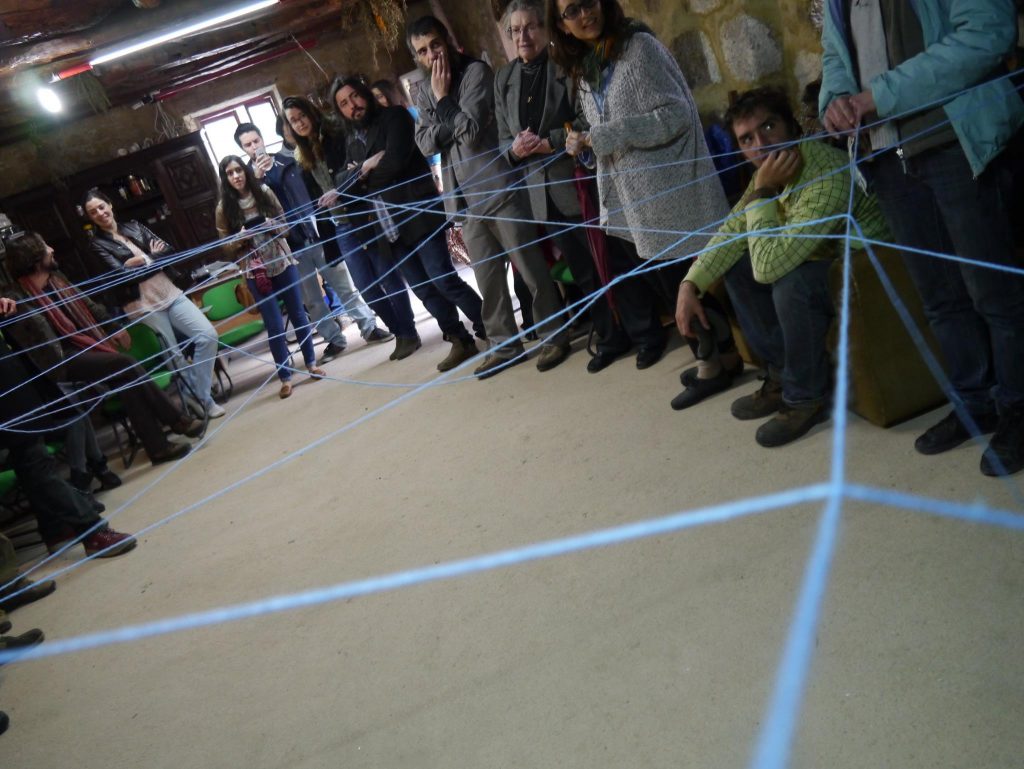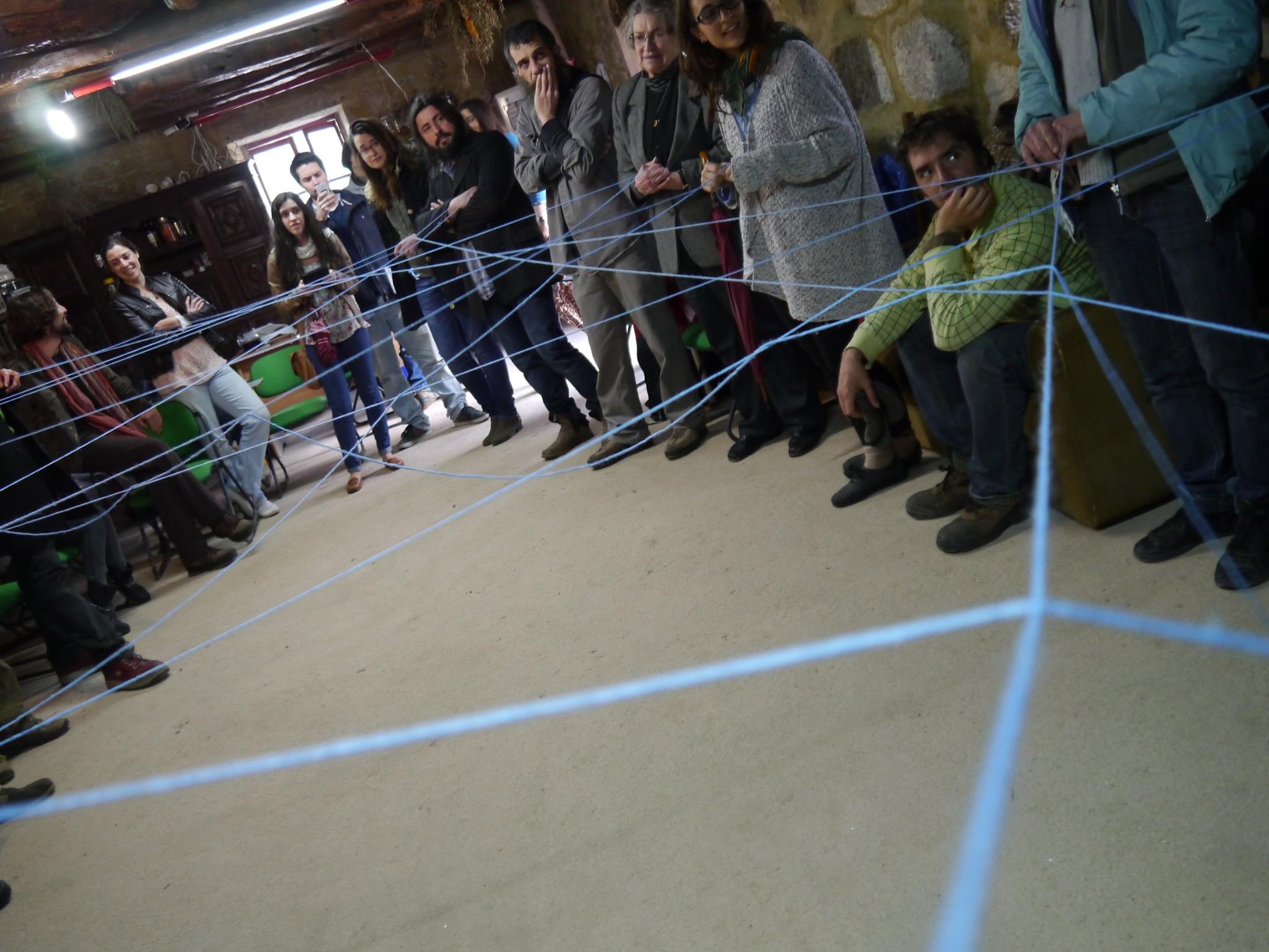The present research project is concerned with a perceived lack of commons-oriented initiatives in the Portuguese public sphere and aims at investigating and contributing knowledge on communication strategies and tools that advance the community’s governance of shared resources.
Context
Throughout Europe, and around the world, a growing number of grassroots initiatives has been experimenting with different ways to organize life and livelihoods that “challenge existing structures and habits” (Beckett et al., 2015; Shareable, 2017). New commons-oriented socio-economic cultures have gained momentum in response to austerity after 2008’s financial crisis (Castells et al., 2017; Gutiérrez, 2014), alongside increasingly accessible means of (re)production supported by Information and Communication Technologies.
Catalonia can be considered a nerve center of this trend as it hosts a prolific universe of alternative economic practices (Conill et al., 2012; Fuster Morell et al., 2015; Fuster Morell & Salcedo, 2016) which are “inherently political as they are concerned with ownership, participation and social change” (Sbeih, 2014, p. 8). A wealth of agroecological consumer groups, cooperatives, local currencies, feminist economies and other emerging practices which go beyond a purely individual and market-oriented worldview, make the region “probably the most exciting place today to think about the commons” (Benkler, 2017).
Some authors question why alternative economic practices are being reproduced in places like Greece and Spain, but not in others, like Italy or Portugal (Varvarousis & Kallis, 2017), but evidence and research on the reasons remains scarce.
Although Portugal’s post-austerity recovery at the institutional level is internationally praised – as are the government’s “social entrepreneurship” and socio-innovation programmes – little is known about the “other economies” that develop away from the umbrella of the State or without the support of “socially responsible” corporations (Hespanha et al., 2015; Parente, 2017; Baumgarten, 2013 & 2017). Whereas in other European countries the “commons” is becoming part of a current discourse which translates into tangible practices of socio-economic innovation, supported by public policies at the European level, in Portugal the very word “commons” in its contemporary use is still difficult to translate, given the lack of scientific studies and civil society debates around the concept.
Motivations
The current project aims at contributing to the production of knowledge about the contemporary “commons” in Portugal. In the search for meanings and representations of the “commons” in the country, in 2016 I came across the reality of “Baldios” (or “Montes Veciñais” in Galicia) – a possible literal translation of the commons to Portuguese – and began an investigation into the ancestral dynamics of these rural lands which are based on a special “communal” property title distinct from the public and private domains.
The study of the community governance of the traditional commons was helpful to inform the liminal definition of a common space in Porto aimed at housing a group of associations and cooperatives dedicated to developing sustainable modes of production, in common. Although the commoning intention hasn’t come to life, this research resulted in the paper “Neither Public Nor Private: Baldio” (Canha & Moreira, 2016), which explores parallels of community governance in both rural and urban contexts.
The “urban commons” (Stavrides, 2016) are at the heart of several projects that I have co-developed in recent years in the fields of community media, solidarity economy and agroecology in Portugal, such as the Association for the Maintenance of the Proximity Economy (AMEP), which fostered the production and consumption of essential goods using a social currency; the ECOSOL movement (acronym for Solidarity Economy), which put the said currency in circulation in 2014; the community radio show O Som é a Enxada (Radio Manobras), which for more than two years has been promoting an agroecology network in Portugal; the AMAP consumer groups in the Greater Porto area, which self-organize in the weekly distribution of organic produce; and also the community-based urban agriculture projects Horta da Partilha and Horta-lá. How to potentiate them in common?

One of the main findings drawn from my previous empirical work is that communication is one of the main factors affecting the success or fragility of the initiatives, deeply affecting them in terms of organization, decision-making, participation, sustainability and impact. To understand the socio-technological and discursive dimensions that sustain the emerging modes of production and consumption, it is necessary to further research the “communicative ecology” (Foth & Hearn, 2007) of the commons.
The current research proposal emerges from these experiences and also from previous field work in Catalonia where I have contact with commons-oriented organizations which have partly informed the establishment and development of the aforementioned projects. By assessing different approaches to socio-economic innovation and comparing two contexts with different levels of development, I can better test my hypotheses and answer my main research questions, while creating a context where pragmatic change can occur through bringing research on communication for the commons into action.

